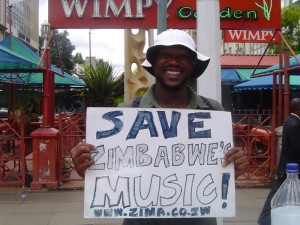White-collar criminals in Zimbabwe’s parliament and government
Wednesday, March 31st, 2010 by Upenyu Makoni-MuchemwaI have heard rumours of Members of Parliament who visit their constituencies only to campaign during elections. They are never seen, or heard of again. These are the same parliamentarians who last year refused to take vehicles from local company Willowvale Motor Industries – which could have used the boost in sales – and instead opted to import vehicles from various sources; no doubt duty free. This little exercise carried out in the name of ‘allowing our MPs to fulfil their duties’- one of which I presume is regularly visiting the people they represent – cost the taxpayer US6million.
At present 80% of our population is rural earning less than US$100 per month, well below the poverty datum line. It is this 80% of our population that was used to justify buying ‘all terrain’ vehicles for MPs. Meanwhile, the International Red Cross estimates that approximately a third of Zimbabwe’s population is in need of food aid.
With the Constitutional hullabaloo that is engulfing the nation our honourable parliamentarians are carrying out consultations with the people. Both Houses with a combined membership of 276 have adjourned to do their civic duty until mid June. Parliamentarians are being paid US$300 per day in addition to their regular government salaries and privileges.
Lets say that these consultations began after Easter. And let’s be generous and give our parliamentarians the weekends off. That would mean that they should be in consultations with us, ‘the people’, for approximately fifty-four days.
Now multiply 276 honourable members of parliament by 54 days living on 300 dollars a day . . .
Call me crazy, but that seems to be a hefty price to pay for the privilege of having my Member of Parliament give me what I hope will be a ‘non partisan’ explanation of constitutional issues. Even if taxpayers aren’t the ones to foot the bill for the consultations, surely the parliamentarians themselves should question their right to demand so much money. But I suppose that would suggest that our politicians are actually in politics to make a tangible change in Zimbabweans lives. Plainly speaking, they’re in politics because politics in Zimbabwe is a business. It has nothing to do with the electorate. Having an electorate simply legitimises the presence of white-collar criminals in parliament and government.



 A week ago
A week ago 





